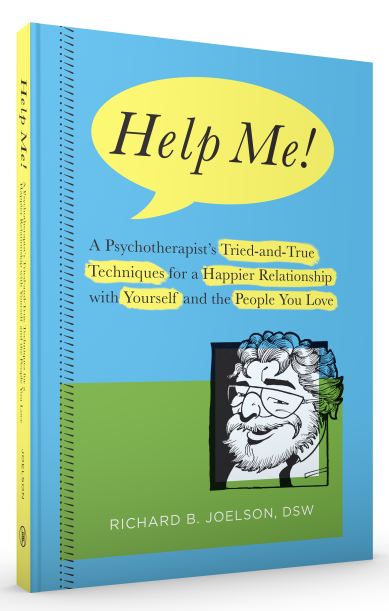Frequently, counseling and psychotherapy clients express that after extensive treatment; they feel much more knowledgeable about their difficulties and have achieved a richer understanding of how and why their issues developed. However, they do not feel that they have made significant changes. I call this oft-heard condition “insight rich and change poor.”
One of the ways I discuss change with my clients is by defining three states of awareness: hindsight, insight, and foresight. In the process of trying to change, hindsight is often the first way in which a person becomes more self-aware. Looking back at a problematic choice or action taken provides a useful beginning in the effort to function differently. “Gee, I wish I had not done that,” or “I can’t believe I did the same dumb thing again,” are examples of hindsight that offer an opportunity to pay closer attention and work on problematic behaviors. Insight might occur in the process change. This occurs when a person becomes self-aware during the commission of a regrettable action or behavior. “There I go again,” is the phrase that often accompanies an insightful moment. The advantage of insight over hindsight is that insight may occur in time for a regrettable action or decision to be avoided.
Hindsight, by definition, is always after the fact. The final goal in promoting change is achieving the state of self-awareness; namely, foresight. Change may be best achieved when someone can look over the horizon and foresee an opportunity or situation where they can employ their collection of hindsights and insights and function in a way compatible with their therapeutic goals. This might be the operational definition of meaningful change. Let me illustrate with a brief client example.
Laura, a 42-year-old married woman with two young children, wanted to change the “terrible” way she related to her aging, “difficult-to-tolerate” widowed mother. During the hindsight phase of her treatment, reports of regret at how she behaved between sessions dominated the conversations as we tried to understand and modify her behavior. In phase two, her capacity for insight enabled her to be more reflective and be better able to handle her anger and resentment resulting in much less regret and further damage to her self-esteem and her relationship with her mother. In phase three, her foresight, along with many other treatment gains, enabled her to anticipate the visits with a better sense of emotional control and determination to conduct herself differently.
Change means different things to different people. In therapy and in life, it is important that we always see change as possible and work with determination to achieve our goals.
